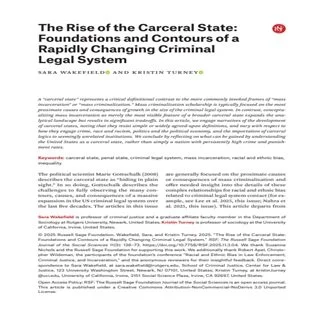By The Maryland Equitable Justice Collaborative
This report outlines 18 recommendations to address the urgent need for criminal justice reform and reduce racial disparities in Maryland’s prisons and jails. Developed through over a year of research, analysis, and collaboration with experts, service providers, and impacted community members, these recommendations provide clear steps for change. The report summarizes key research, data, and proposed actions to help reduce the overrepresentation of Black people in its criminal legal system.
Maryland’s criminal legal system has decreased in size by almost every measure. Arrest rate, jail population, prison population, and the number of people on parole and probation2 are all on the decline3 and below the national average. However, these gains obscure a troubling reality: racial disparities within the system remain stark and, in some instances, have worsened.5 Maryland's Black population, which constitutes only 30% of the State's residents, represents a disproportionate segment of those entangled in the criminal legal system. Alarmingly, Black people account for 51% of arrests,6 59% of the jail population,7 71% of the prison population,8 71% of the parole population,9 and 53% of the probation population.10 This persistent racial injustice highlights the urgent need for reform within the system to address these inequities. About MEJC - MEJC is a joint initiative led by the Office of the Attorney General (OAG) and the Maryland Office of the Public Defender (MOPD) to address the racial disparities in the incarceration of Black people in Maryland prisons and jails. MEJC’s existence is a recognition that Maryland’s decarceration efforts have not reduced the glaring racial disparities in our criminal legal system and that we must abandon the outdated notion that they will. MEJC’s recommendations also acknowledge that the current criminal legal system produces inequitable results for Black people and, without radical change, will continue to do so at alarming rates. Therefore, MEJC has taken a clear-eyed look at current policies, informed by historical and systemic injustices, which directly contribute to the disproportionate outcomes and harm to Black people in Maryland’s criminal legal system. The data and statistical findings in this first annual report reveal much more than numbers; they represent real lives impacted by a system that too often fails our children; disproportionately punishes Black people and other communities of color; and neglects basic human dignity in our prisons and jails. In this report, MEJC, in partnership with policy experts, educators, and community voices, presents clear, urgent recommendations that could reverse these inequities. This is a pivotal moment for Maryland’s criminal legal system. MEJC presents the opportunity to confront these unfair outcomes head-on and build a system that reflects Maryland’s highest values of fairness, community, and opportunity. RECOMMENDATIONS In recognition of the all-encompassing nature of racial disparities in our criminal legal system, MEJC’s recommendations address comprehensive aspects of an impacted person’s experience, from how and why a person first encounters law enforcement to how the system supports or does not support a person’s journey back from incarceration. All recommendations are rooted in data and evidence that clearly demonstrate (1) the inefficiencies or inadequacies of our current policies, (2) the disparate outcomes for Black people because of the status quo, and (3) the efficacy of the recommended solutions.
Baltimore: Office of the Maryland Attorney General, 2025. 111p.













